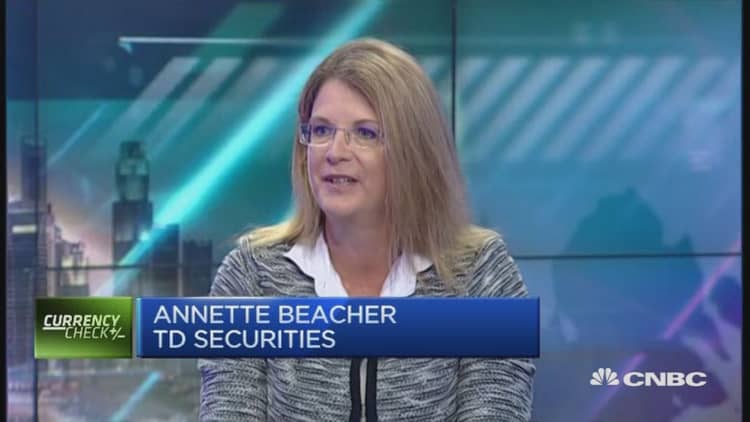The U.S. dollar fell, hitting one-week lows against the euro on Friday after a drop in U.S. wages in February overshadowed strong jobs growth and supported views that the Federal Reserve was in no hurry to hike interest rates.
Average hourly earnings fell 3 cents in February, data from the Labor Department showed. Analysts said traders were fixated on that drop even as nonfarm payrolls increased by 242,000 jobs last month.
The dollar was set to post its first weekly decline against the euro in three weeks.
"The weak wage numbers are clearly an indication that maybe the Fed will ultimately be okay waiting a little bit longer," said Axel Merk, president and chief investment officer of Palo Alto, California-based Merk Investments.

The drop in U.S. wages suggested that inflation remained muted, analysts said. Fed policymakers are watching inflation closely in their assessment of when to continue hiking rates.
While the dollar initially gained after the report given the monthly jobs growth, it soon reversed course, with the euro rising to a session high of $1.1042, its highest level in a week.
The dollar index, which measures the greenback against a basket of six major rivals, hit a nearly two-week low of 97.019 and was last down 0.38 percent at 97.22.
The dollar reversed losses against the safe-haven in afternoon trading and hit a session high of 114.25 yen, however, a move analysts attributed to greater risk appetite. The dollar was last up 0.07 percent against the yen at 113.75 yen.
The euro, which had already hit one-week highs before the release of the jobs data on the perception that euro rates already factor in more easing by European Central Bankpolicymakers next week, resumed gains on that view.
The euro was last up 0.03 percent against the dollar at $1.1004.
Traders who were forced to rapidly repurchase the euro on Dec. 3 after the ECB disappointed expectations with a smaller-than-expected stimulus move were also reversing short bets ahead of the ECB meeting on March 10, analysts said.
"People were terribly burned in early December," said Marc Chandler, global head of currency strategy at Brown Brothers Harriman in New York. "That's encouraging people to cover their shorts."
The dollar, which hit a one-week low against the Swiss franc of 0.9881 franc in the wake of the U.S. jobs data, rebounded and was last up 0.12 percent at 0.9934 franc.


